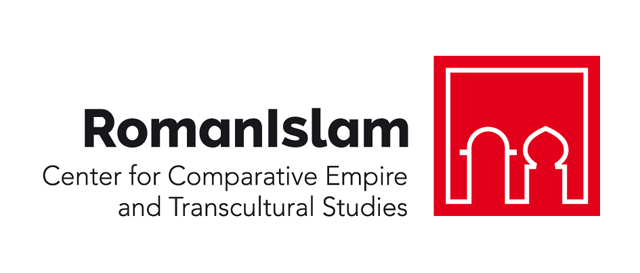Dr. Daniel Syrbe
April 2020 - June 2020

Research Project: Local Government in Roman North Africa: Urban and Rural Communities from 1st c. BCE to 7th c. CE
My project analyzes the interplay between the imperial and the local level of administration in Roman North Africa. By adopting a long-term perspective, covering the period form the 1st c. BCE to the 7th c. CE, and by taking in account regional differences, I aim at tracing continuities and changes of governmental institutions and practices. For maintaining political control it was important for the Roman imperial government to create stable vertical links between the imperial center, represented by the provincial administration, and the broad variety of local players, as for example the numerous cities, small towns and rural communities of the North African countryside. In some cases, these links between the imperial and the local level followed the standard model of Roman administration, but very often also integrated institutions deeply rooted in pre-Roman traditions.
Two case studies are at the center of my project. First, the urban communities of the provinces of Mauretania Tingitana and Mauretania Caesariensis provide insights in interrelations of imperial and local municipal institutions. Second, structures of self-government in the rural areas of the North African provinces show, that Roman imperial control derived not only from administrative institutions but often from informal mechanisms relying on social prestige and interrelations between different local players. Both case studies together indicate the diversity of Roman governmental practice in the provincial areas of North Africa.
In addition to these historical questions, my project wants to contribute to a more nuanced understanding of theoretical concepts of political and cultural acculturation, traditionally referred to as “Romanization”, a term recent research has shown to cover the local situation only inadequately, and add to a comparative discussion of developments in Roman and early Islamic North Africa.
Profile
The esearch interests of Dr. Daniel Syrbe are in the field of the political and cultural transition between late antiquity and the early middle ages. He studied ancient history and archaeology at the Universities of Leipzig and Cologne in Germany and at the University of Leiden in the Netherlands. In his PhD thesis he analyzed interrelations between nomadic and sedentary populations in Roman and Byzantine North Africa (3rd to 6th c. CE). After that, he moved, geographically speaking, from North Africa to the Danube and continued his research at the “Leibniz Institute for the History and Culture of Eastern Europe” in Leipzig (GER). As part of an interdisciplinary research group of historians and archaeologists he worked on the function of central places and on the Christianization of the middle Danube region in late antiquity and the middle ages. Since 2017 he is based at Radboud University in Nijmegen (NL). As part of the research group “Constraints and Tradition” he analyzes the influence of social and cultural traditions on political communication in the Roman empire of the 1st c. BCE to the 6th c. CE. His actual project at the “RomanIslam” center in Hamburg takes him back to North Africa and at the same time offers a chance to bring together different ideas and approaches from his previous work.
Selected Publications
Syrbe, Daniel (2020), Nomaden und Sesshafte im spätantiken Nordafrika (3.-6. Jh.). Kulturgeschichtliche Kontinuitätslinien im Spannungsfeld der Herrschaft von Rom bis Byzanz (Millennium-Studien 74), Berlin/New York: Walter de Gruyter.
Syrbe, Daniel / Hekster, O. / Manders, E. / Betjes, S./ Heijnen, S./ Innantuono, K/ Jussen, D (2019a), "Accommodating Political Change under the Tetrarchy (293 – 306)", KLIO 101/2, 601-639.
Syrbe, Daniel (2019b), "Gregory the Great and the Bishops. Papal Letters and the Ecclesiastical Integration and Disintegration of East Central Europe", in: Balazs Nagy, Felicitas Schmieder, Andras Vadas, eds., The Medieval Networks in East Central Europe: Commerce, Contacts, Communication, London/New York: Routledge, 71-86.
Syrbe, Daniel/ Bugarski, Ivan/ Heinrich-Tamáska, Orsolya/ Ivanišević, Vujadin (2016a), GrenzÜbergange. “Late Roman”, “Early Christian”, “Early Byzantine” as Categories in Historic-Archaeological Research at the Middle Danube (4th to 8th c. AD), 27th International Symposium der Grundprobleme der frühgeschichtlichen Entwicklung im mittleren Donauraum, (Forschungen zu Spätantike und Mittealter 4), Weinstadt: Greiner Verlag.
Syrbe, Daniel (2016b), "Regensburg und die Grenzen und Übergange zwischen Antike und Mittealter im raetischen Donauraum", in: Syrbe, Daniel/ Bugarski, Ivan/ Heinrich-Tamáska, Orsolya/ Ivanišević, Vujadin (2016), GrenzÜbergange. “Late Roman”, “Early Christian”, “Early Byzantine” as Categories in Historic-Archaeological Research at the Middle Danube (4th to 8th c. AD), 27th International Symposium der Grundprobleme der frühgeschichtlichen Entwicklung im mittleren Donauraum, (Forschungen zu Spätantike und Mittealter 4), Weinstadt: Greiner Verlag, 327-342.
Syrbe, Daniel/ Heinrich-Tamáska, Orsolya (2016c), „GrenzÜbergange“ zwischen 300 und 800 n. Chr. Einführende Betrachtungen zu den globalen und lokalen Verflechtungen des Mitteldonauraumes, in: Syrbe, Daniel/ Bugarski, Ivan/ Heinrich-Tamáska, Orsolya/ Ivanišević, Vujadin (2016), GrenzÜbergange. “Late Roman”, “Early Christian”, “Early Byzantine” as Categories in Historic-Archaeological Research at the Middle Danube (4th to 8th c. AD), 27th International Symposium der Grundprobleme der frühgeschichtlichen Entwicklung im mittleren Donauraum, (Forschungen zu Spätantike und Mittealter 4), Weinstadt: Greiner Verlag, 11-39.
Syrbe, Daniel (2012), Byzanz in der Steppe. Reiternomaden des Schwarzmeerraums (Kutriguren und Utiguren) und byzantinische Diplomatie im 6. Jahrhundert, Acta Orientalia 65, 291-316.


